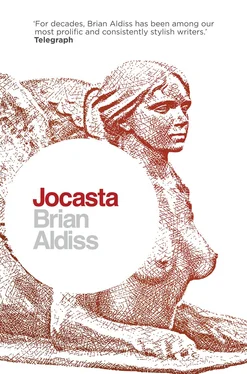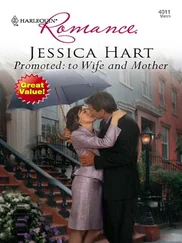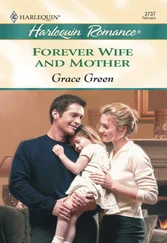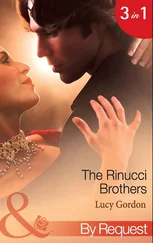JOCASTA: WIFE AND MOTHER
Brian Aldiss
Copyright Table of Contents Cover Title Page Copyright Dedication Epigraph Jocasta Chapter 1 Chapter 2 Chapter 3 Chapter 4 Chapter 5 Chapter 6 Chapter 7 Chapter 8 Chapter 9 Chapter 10 Chapter 11 Chapter 12 Chapter 13 Chapter 14 Chapter 15 Chapter 16 Chapter 17 Antigone Chapter I Chapter II Chapter III Chapter IV Chapter V Acknowledgements About the Author Other titles in the Brian Aldiss Collection About the Publisher
The Friday Project
An imprint of HarperCollins Publishers
77–85 Fulham Palace Road
Hammersmith, London W6 8JB
www.harpercollins.co.uk
This ebook first published in Great Britain by HarperCollins Publishers Ltd 2014
Copyright © Brian Aldiss 2014
Cover design © HarperCollins Publishers Ltd 2014
Brian Aldiss asserts the moral right to be identified as the author of this work.
A catalogue record for this book is available from the British Library
All rights reserved under International and Pan-American Copyright Conventions. By payment of the required fees, you have been granted the non-exclusive, non-transferable right to access and read the text of this e-book on screen. No part of this text may be reproduced, transmitted, down-loaded, decompiled, reverse engineered, or stored in or introduced into any information storage and retrieval system, in any form or by any means, whether electronic or mechanical, now known or hereinafter invented, without the express written permission of HarperCollins.
Source ISBN: 9780007482146
Ebook Edition © 2014 ISBN: 9780007482153
Version: 2014-11-12
Dedication Table of Contents Cover Title Page Copyright Dedication Epigraph Jocasta Chapter 1 Chapter 2 Chapter 3 Chapter 4 Chapter 5 Chapter 6 Chapter 7 Chapter 8 Chapter 9 Chapter 10 Chapter 11 Chapter 12 Chapter 13 Chapter 14 Chapter 15 Chapter 16 Chapter 17 Antigone Chapter I Chapter II Chapter III Chapter IV Chapter V Acknowledgements About the Author Other titles in the Brian Aldiss Collection About the Publisher
For JASON
my Anglo-Greek grandson
with
hopes for his new life
and for his generation
She was not unprincipled. In many respects
she was a ‘Good Woman’. But love and lust
silenced her. She could have spoken.
She did not speak. So the trap was sprung.
From then on, decline was inevitable
and a kingdom was lost.
We all face similar crises
wherein we are made or broken.
Table of Contents
Cover
Title Page JOCASTA: WIFE AND MOTHER Brian Aldiss
Copyright
Dedication
Epigraph
Jocasta
Chapter 1
Chapter 2
Chapter 3
Chapter 4
Chapter 5
Chapter 6
Chapter 7
Chapter 8
Chapter 9
Chapter 10
Chapter 11
Chapter 12
Chapter 13
Chapter 14
Chapter 15
Chapter 16
Chapter 17
Antigone
Chapter I
Chapter II
Chapter III
Chapter IV
Chapter V
Acknowledgements
About the Author
Other titles in the Brian Aldiss Collection
About the Publisher
Jocasta
The flowers on the hillside were dying in the August heat. They crunched under Jocasta’s naked tread, spines of Skylokremida, crisp remains of Agriolitsa. Lizards scuttled away from her feet. It was said in the city that where the queen trod, clumps of yellow amaranth sprang up.
Jocasta wore a soft skin skirt and a sleeveless leather blouse which hung loose in part and in part adhered to the moist flesh of her upper body. Her thick black hair, flecked with white, hung down her back in a knotted rope. Her body was developing a certain heaviness: yet she strode so easily up the hill that her guard panted to keep up. She was the Queen of Thebes, lovely of lip, beauteous of bosom.
She had caught a hare among the rocks in the valley. Its body was slung across the small hummocks of her spine, with a sharp twig piercing the tendons of its legs. The jog of her movements caused blood to run like tears from the dead creature’s nose; the tears dripped down Jocasta’s back, staining the tendons of her legs as she walked.
The stone walls of Thebes were lit by the lowering sun. She went in through the south-east gate, under the eye of a lounging sentry who brought his staff to the vertical in salute, himself with it. The palace was a low building, distinguished from its neighbours by its spaciousness and the four-pillared portico adorning its facade. Jocasta avoided the front entrance, trotting round to the rear over weedy wasteland.
She passed her grandmother’s altar stone, on which something still smouldered among ashes. Most likely it was the remains of a snake, old Semele’s favoured offering to her dark gods. On the ground in front of the stone, human ordure had been part-covered by sprinkled soil. Jocasta clapped her forehead in instinctive obeisance as she passed by.
As if from a magician’s cupboard, Jocasta’s old handmaid, Hezikiee, came trundling forth, arms raised in hopes to embrace her mistress.
‘O Queen Jocasta, my pet! And you’ve been out hunting again. How I feared you were killed.’
‘Nonsense, Hezikiee, I merely chased a hare.’
‘Oh, but the wild beasts—’
‘Round Thebes? Nonsense. Let me pass.’
‘Please tell me you’re not killed. It bleeds, your poor leg! You will soon be dead.’
‘Stop it, will you, my Hezikiee? It’s the blood of the hare I killed, and nothing more.’ She pushed past the trembling, devoted old creature, who still mumbled to herself in an apotropaic fashion.
As the queen entered the kitchen, she heard the voice of her husband Oedipus roaring in the front chamber. He was holding an audience with a delegation of local people.
‘You farmers, you’re so fond of complaining instead of tending your land! Small wonder it fails. What can you want of me now? Can you not leave me in peace?’
And an old man’s voice answered with a whine in his throat. ‘Great Oedipus, the plague is here. You see it is not only the old who come before you, but the young chicks among us too. For the curse upon Thebes afflicts young and old alike. Everywhere there is affliction.’
‘Affliction is the common lot of man,’ said Oedipus, more calmly.
His wife, standing with the hare in one hand and a knife in the other, said, aloud but softly, ‘And of women, too!’
Passing the dead animal and the knife to one of her slaves, she went to lave her hands in a bowl of scented water which Hezikiee held, murmuring her happiness to have her mistress safe. Jocasta took little notice; her mind was clouded by other matters. As she washed her arms and hands and bathed her face, grateful for the liquid coolness of the water, animal cries of dispute came to her from outside.
‘Oh, dearie me, it’s that awful thing again,’ said Hezikiee. ‘And in an egg-laying mood, without anything to provoke birth with the usual you-know-what business first.’
Promptly, but without haste, Jocasta left the palace and went to cross the square towards the building where her grandmother lived. It was not the Sphinx causing the commotion, as the old slave woman had supposed.
Semele was outside her dwelling with a broom, trying to beat off three large flying creatures of grotesque appearance which were hovering above her porch. Rising just out of reach of the bristles, the creatures were singing raspingly to the beat of their leathery wings:
This is the house with no luck at all.
Читать дальше












